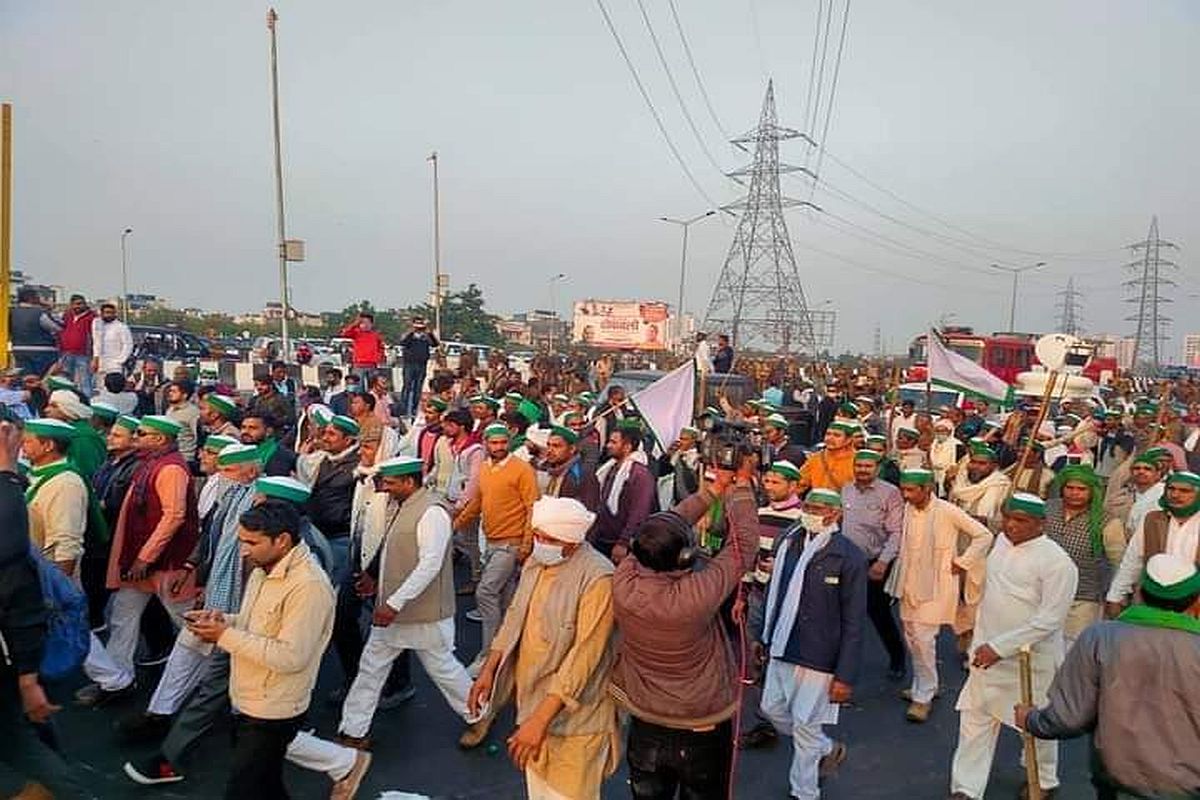A day before the government’s crucial sixth round of talks with representatives of protesting farmers, Home minister Amit Shah on Tuesday met a select group of union leaders in a bid to break the deadlock.
Sources said 13 farmer leaders were called for the meeting, which began after 8 pm. The farmer leaders included eight from Punjab and five from various nationwide organisations.
Advertisement
Sources said the participating leaders included Hannan Mollah of the All India Kisan Sabha and Rakesh Tikait of the Bharatiya Kisan Union (BKU).
Some farmer leaders said they first expected the meeting would take place at Shah’s residence here, but the venue was shifted to National Agricultural Science Complex, Pusa.
The meeting came on a day a ‘Bharat Bandh’ observed by farmers to press their demand affected life in some states. The meeting, however, appeared to have created discord among the organisations spearheading the protests on Delhi’s borders for the past 12 days with the head of the BKU (Ugrahan), which is one of the largest outfits in the bloc, questioning the rationale of the talks a day before the scheduled official consultations.
In a social media post, Joginder Singh Ugrahan, who was not invited to the meeting with Shah, said there was no need for the talks before official consultations and hoped that the leaders attending today’s meet would keep in mind the view of the larger group.
Farmer leaders have been firm on their demand for repeal of three new farm laws enacted in September, which they claim will benefit corporates and end the mandi system and the minimum support price (MSP) regime.
“We will demand just a ‘yes’ or a ‘no’ from Home Minister Amit Shah,” farmer leader Rudru Singh Mansa told reporters earlier in the day at the Singhu border where thousands of farmers have been protesting for the last 12 days.
The government has maintained that it is committed to the welfare of farmers and have presented these laws as major reforms for their benefits.
The Union cabinet is expected to meet tomorrow at 10.30 am to firm up the government strategy to placate farmers.
Earlier today shops and commercial establishments were closed, transport affected and traffic disrupted as protesters squatted on roads and train tracks in several parts of the country on Tuesday in response to a Bharat Bandh’ called by farmers demanding a repeal of the new agri laws.
Emergency services were exempted and banks, too, continued operations as the pan-India shutdown, backed by most opposition parties and many trade unions, came into effect with the maximum impact in states such as Punjab, Haryana and Delhi, the epicentre of the snowballing protests.
Security was stepped up across the country, noisy demonstrations were held in many places and the numbers swelled at Delhi’s border points where thousands of farmers have been camping for the last 11 days. Protesters blocked railway tracks at several places in West Bengal, Bihar and Odisha.
From the Rajasthan capital Jaipur, where mandis’ were closed but shops were open, there were reports of clashes between workers of the state’s ruling Congress and the BJP.
The protesting farmers fear the new laws will pave the way for eliminating the safety of the Minimum Support Price cushion and do away with ‘mandis’, leaving them at the mercy of big corporates.
The government maintains the new laws will bring farmers better opportunities and usher in new technologies in agriculture.
Farmers from Punjab and also Haryana have been the drivers of the movement. In Punjab, shops and commercial establishments were closed as were 3,400 fuel pumps. From morning, farmer leaders appealed to shopkeepers and traders to keep their shutters down.











